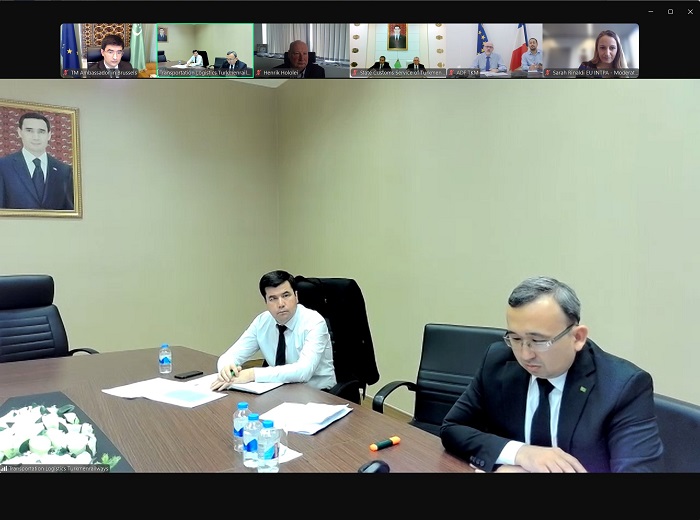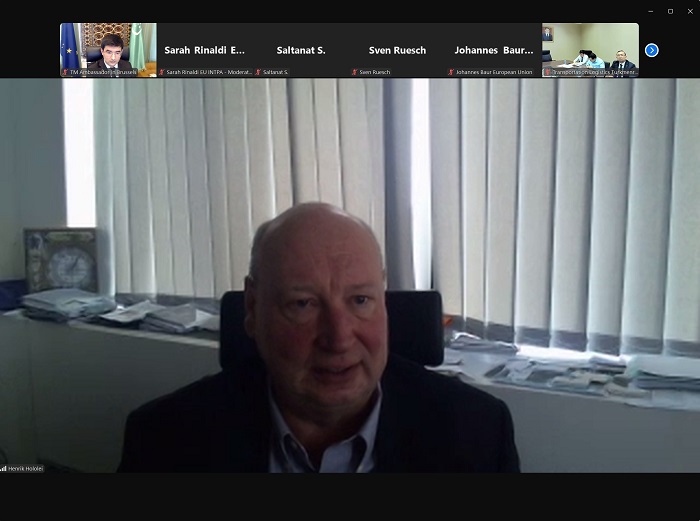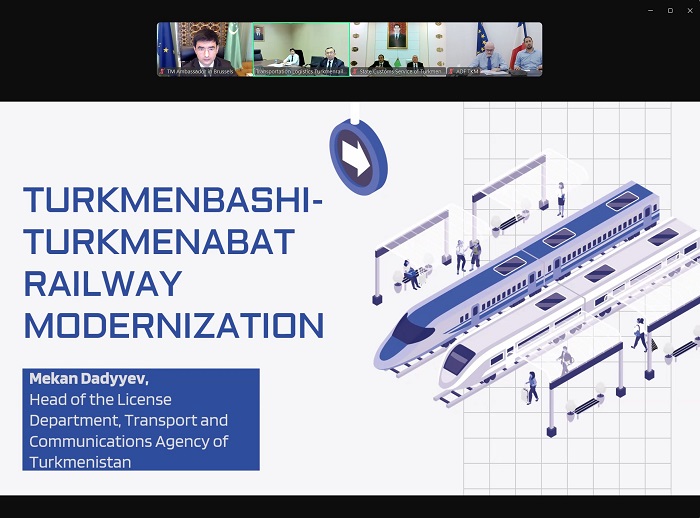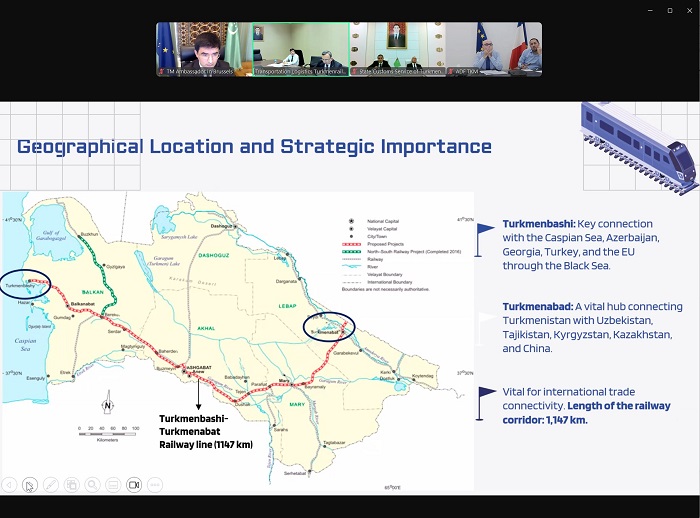 On November 20, an online seminar was held under the EU Coordination Platform for the development of the Trans-Caspian Transport Corridor.
On November 20, an online seminar was held under the EU Coordination Platform for the development of the Trans-Caspian Transport Corridor.
The event brought together representatives of Turkmenistan’s government agencies, the European Union, international financial institutions, and foreign embassies.
 On behalf of Turkmenistan, participants included the Agency of Transport and Communications, the Turkmen Railways Agency (“Türkmendemirýollary”), the State Customs Service, and the Ambassador of Turkmenistan to Brussels, S. Palvanov.
On behalf of Turkmenistan, participants included the Agency of Transport and Communications, the Turkmen Railways Agency (“Türkmendemirýollary”), the State Customs Service, and the Ambassador of Turkmenistan to Brussels, S. Palvanov.
The EU side was represented by the Directorate-General for International Partnerships of the European Commission (DG INTPA), international financial institutions such as the Asian Development Bank (ADB) and the European Bank for Reconstruction and Development (EBRD), the French Ambassador to Turkmenistan, and other diplomatic missions in Ashgabat.
 The opening remarks were delivered by Henrik Hololei, Chief Advisor to the Director-General of the European Commission on International Cooperation.
The opening remarks were delivered by Henrik Hololei, Chief Advisor to the Director-General of the European Commission on International Cooperation.
The main objective of the seminar was to discuss Turkmenistan’s priority transport projects and explore opportunities for their financing within the framework of international cooperation. Participants emphasized the importance of developing transport infrastructure to enhance the transit potential of the Trans-Caspian Corridor and strengthen connections between Central Asia and Europe.
The seminar built on an initiative launched on October 3 in Ashgabat, where the Coordination Platform for the Trans-Caspian Transport Corridor was officially inaugurated at a high level. The platform was established to facilitate dialogue between Central Asian countries, international financial institutions, and the EU, while promoting the corridor and coordinating efforts to implement priority projects in both hard and soft infrastructure across Central Asia.
 During the seminar, participants discussed several key issues, including:
During the seminar, participants discussed several key issues, including:
• Modernizing Turkmenistan’s railway infrastructure, particularly the Turkmenabat–Turkmenbashi route, with a focus on constructing new tracks and reducing cargo transit times.
• Implementing innovative technologies, such as electronic data collection and monitoring systems.
• Establishing a unified logistics portal to optimize transport and customs operations.
• Attracting international financing and technical assistance for project implementation, supported by financial institutions such as the ADB, EBRD, and the European Investment Bank.
Participants highlighted the importance of information exchange and coordination among all stakeholders. Special attention was given to the development of project concepts and their presentation to potential investors. EU representatives reaffirmed their readiness to provide technical and advisory support, including conducting additional research and developing roadmaps.
This online discussion marked another step forward in EU-Turkmenistan cooperation in the field of transport and logistics. ///Embassy of Turkmenistan to Belgium, 21 November 2024